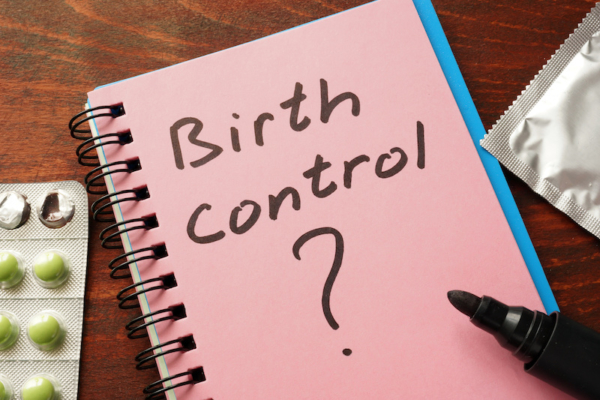Birth control is not a one-size-fits-all solution, nor is it even one-size-fits-most. From pills to implants and everything in between, there are a wide variety of birth control options available.
The type of birth control that is best for you will be determined by your health, lifestyle, access to certain methods, and even your insurance coverage. Your physician can help you make the most informed decision, but be prepared that you may have to try several different methods before finding the best one for you.
Here is a general overview of the different birth control methods that may be available to you:
- Oral Contraception (the pill): Some birth control pills contain only the progestin hormone, while others contain a combination of estrogen and progestin. In addition to preventing pregnancy, they can also help lessen painful menstrual cramps, achieve lighter periods, or help reduce symptoms of premenstrual syndrome (PMS). The downside is that it can be difficult to remember to take daily, and it’s most effective when taken at the same time each day.
- Barrier Methods: Barrier methods of birth control such as diaphragms block sperm from entering into the uterus. The greatest benefit is that it is a hormone-free method. However, to be most effective they should be used in combination with spermicide and left in place for a minimum of six hours after intercourse.
- Condoms: Condoms are the only birth control option that also prevents the spread of sexually transmitted diseases and infections. There are options available for both women and men.
- Patch or Ring: The patch or ring are hormonal birth control methods similar to the pill, but don’t require the daily activity of having to remember to use it. The patch is a small piece of plastic that can be placed externally on your arm, stomach or buttock. It does need to be replaced weekly. The ring is a small, flexible device that is inserted in the vagina. It can be used for three weeks at a time but requires removal for one week each month in order for you to have a period.
- Shots: For longer-term results, a hormone (progestin) shot in the arm every three months can block ovulation to prevent pregnancy. This method may also reduce the risk of uterine cancer and protect you from pelvic inflammatory disease. On the downside, you will have to go to the doctor’s office each time you need a shot. It can also cause more irregular bleeding, especially in the first few months of use, compared to the pill, patch or ring.
- Intrauterine Device (IUD): An intrauterine device is considered one of the most effective forms of birth control. A T-shaped device is inserted into the uterus by your doctor. There are both hormonal and non-hormonal IUDs. Hormonal IUDs will likely make periods lighter if not completely absent, but whereas non-hormonal IUDs may make periods heavier with more cramping.
- Hormone Implant: Hormone implants are another invisible method. Your physician will insert a small, matchstick-sized piece of plastic containing progestin just under the skin on the upper arm. Some women will not have a period at all, but many women will have irregular bleeding, which can be a downside. It can prevent pregnancy for three years before needing to be replaced.
- Permanent Birth Control: The above birth control methods are all temporary–meaning you can start or discontinue use at any time. For women who know they do not want to have children or are confident they are finished having children, permanent birth control is another option.The two methods of permanent birth control available are tubal ligation (often referred to as having your tubes tied) and vasectomy (for men).
Contact Raleigh OB/GYN Centre
Based on your individual circumstances and medical history, your physician can help you decide which birth control method is most suitable for your needs and lifestyle.
Raleigh OB/GYN Centre has three convenient locations in Raleigh, Wake Forest, and Clayton. The practice has been serving the community for more than 40 years, and currently has seven obstetricians and gynecologists committed to providing quality care for every stage of a woman’s life. To schedule an appointment, call (919) 876-8225 or complete our online appointment request form.


